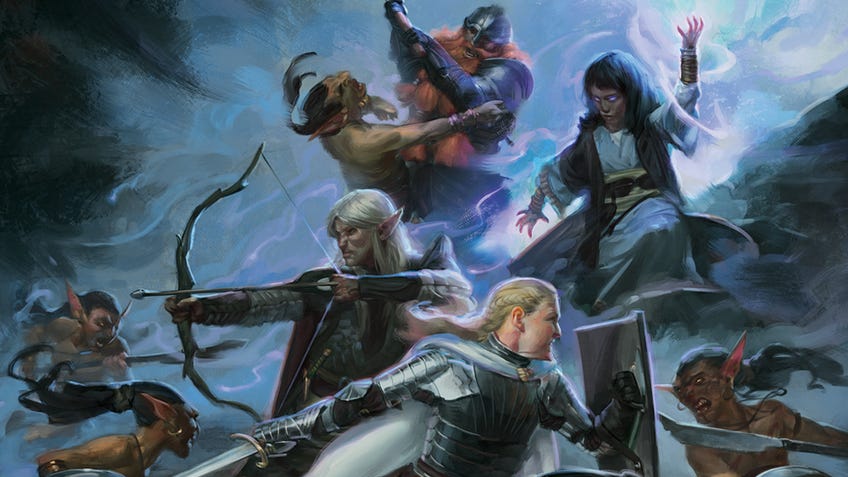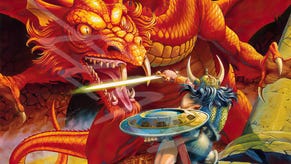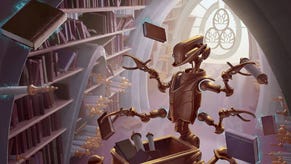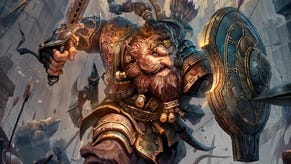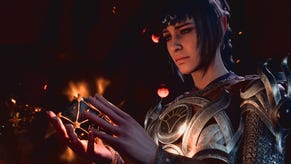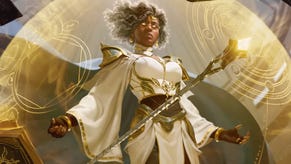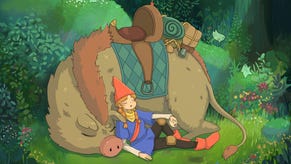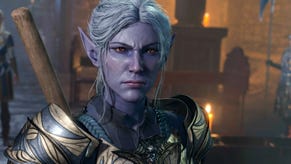How Dungeons & Dragons helped me discover my gender identity
I was playing a man in real life - why not a woman in my escapist hobbies?
There is a joke I’ve seen with some regularity in queer tabletop RPG spaces: “At least one of the players at our tables is using a character to work through identity issues, and if you don’t know who it is, it's you.” Well, I know full well who it is on my tables - me.
Growing up, Section 28 was in force until I was in high school, and its 2003 repeal didn’t filter down to public health classes until after I had finished. Trans representation in popular culture was pretty much limited to being the butt of a joke. As such, exploring my gender didn’t come with education or with visible role models - those had been very much denied to my generation - but through the one outlet I had: gaming.
Initially this had taken the form of video game RPGs, but while the ability to create an avatar of myself - the real me I had been denied the opportunity to understand - provided a sense of relief, the nature of video games limited that. She may have looked like the woman I longed to be but there was always a screen between her and me. Often she did not speak, being instead a silent protagonist. The ability to enter her name, my name, was purely cosmetic, meaning I wouldn’t be addressed as her. Often, even her pronouns were avoided in favour of a generic title for the hero of the game.
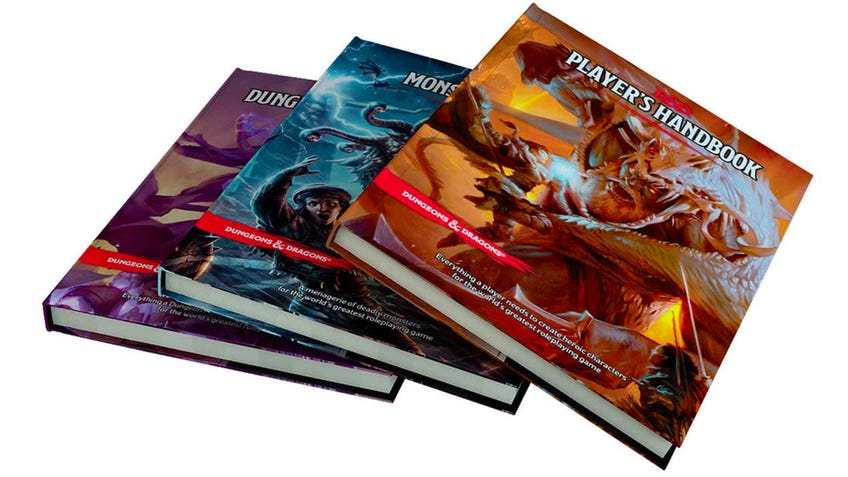
Discovering pen-and-paper games at university, I found they had no such restrictions. I could play as myself, the person I wanted to be, but in a group. Rather than pre-recorded voice lines, the world was made up of other people who would use my name and pronouns. As a tabletop RPG with significant cultural impact, Dungeons & Dragons was my introduction, and I found a game which actively encouraged me to seek this escape from the person I felt trapped as. To quote the D&D 5E Player’s Handbook: “You don’t need to be confined to binary notions of sex and gender" and “you could also play a female character who presents herself as a man [or] a man who feels trapped in a female body”.
A space in which I was free to fully explore gender was liberating and one I clung to.
It is important to note at this point that nothing is inherently queer-inclusive. We all have a duty to make our tables safe for queer people to participate in, and official material can sometimes very much miss the mark on this. D&D’s updated Tomb of Horrors module from 2017's Tales from the Yawning Portal, for instance, includes a room which inverts your character alignment and sex without much consideration for the impact on trans characters, or even indeed how that would work with non-binary characters. However, a space in which I was free to fully explore gender was liberating and one I clung to.
The freedom to explore gender didn’t just come as an environment where it was encouraged, but also as plausible deniability for what I was doing. There was no requirement to out myself while still entirely unsure about what gender meant to me; no need for me to bare my soul to people and hope they were accepting while I still didn’t understand myself enough to identify as being trans. Instead, I was just playing a character - I was playing a man in real life, why not a woman in my escapist hobbies?
This desire to explore and experiment took me through a number of groups and games, playing one-shots. While other players tried out a different class or race that they were unsure of playing in full-length campaigns, I took the chance to shed the pretence of being a man and became someone else for a few hours without anyone questioning why. This steady stream of characters became chances to try out different ideals of gender that I felt. While I may not have understood the terms to describe my identity, these characters provided me a chance to learn about how I related to the world and how I wanted to relate to the world.
These characters provided me a chance to learn about how I related to the world and how I wanted to relate to the world.
All of these built up to the most crucial character in my journey towards gender discovery: Kalrissa Mithcyra, a tiefling with a homebrew class that functioned like a cleric/wizard hybrid. She came at a time when my identity as a trans woman had firmly crystallised, but when fear kept me from taking that next step of coming out and transitioning. She was designed from a position of being very certain about being trans but closeted. In this she had a bigger role than any of my other characters in my gender journey: the role of giving me the confidence to come out.
While my previous characters had been, by necessity, playing on the thin edge of gender, Kalrissa pushed that further than ever. She wasn’t just a woman, she was also trans. Truthfully, it still had some deniability. I wrote that she had a long-forgotten name before this one (the name doesn’t exist anywhere; I couldn’t bring myself to devise her deadname) and had sought out magics to escape an unwanted past - not explicitly trans in text, but in my mind that backstory was very much a trans one.

As a character that I was playing in a full-length campaign rather than a one-shot, Kalrissa also gave me the chance to explore different gender expressions. I had an excuse to try out presenting in more feminine ways; my character design wore a billowing robe and a fierce makeup look, and the cosplay element of D&D allowed me to try that for myself, still with the deniability. Dressing as Kalrissa to very little response was exactly what I needed. All that fear of being out in public? She dispelled it within a few sessions, making it clear that transitioning was something I could safely pursue - and needed to.
It is important to stress that I would be trans even without D&D, but without it I could still well be that frightened young boy, dreaming of the woman they longed to be. As it is, I’m out to a number of friends and continuing to expand that number, and starting to transition as well. All those characters, and the games themselves, played an important role in who I am and who I’m finally becoming.
